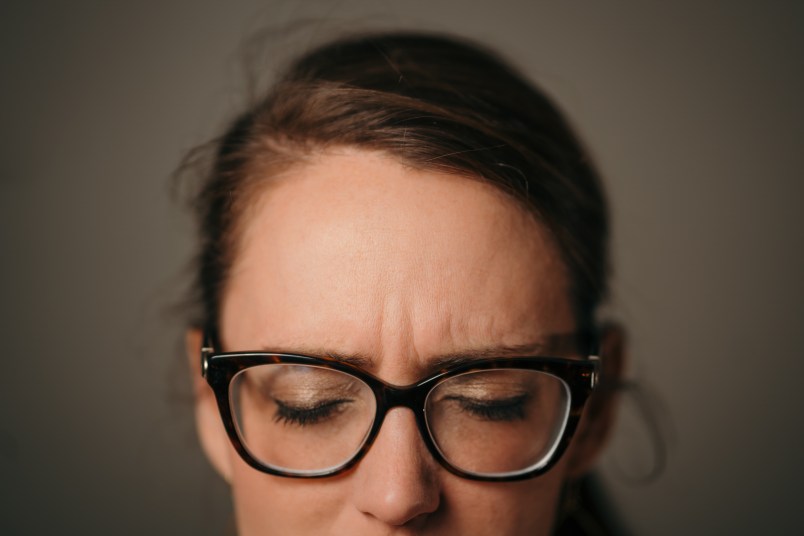Ever Get Anxious When You’re Trying to Relax? It’s More Common Than You Think

I remember the first time I tried to meditate like it was yesterday. I couldn’t sit comfortably, I kept fidgeting, and when I tried to “clear my mind,” all I could do was think about the other things I should be doing —laundry, cleaning, organizing my closet. It was maddening. From then on, just the thought of sitting to do this thing that’s supposed to be relaxing gave me anxiety, and this drove me nuts! But as it turns out, this is actually pretty common, and scientists have a name for it — relaxation-induced anxiety.
The concept seems simple enough, but relaxation-induced anxiety can be pretty complicated and make self-care difficult for many people. According to researchers from Penn State University, “Relaxation induced anxiety (RIA) is a paradoxical phenomenon wherein people experience a spike in their anxiety during relaxation training.” In their recent study, they suggest that RIA happens because of something called contrast-avoidance, or when a person consciously or unconsciously fears a sharp spike in negative emotion, and therefore protects herself by maintaining a constant state of worry. Tricky, huh?
In the study, researchers examined 96 adults, 36 of whom had general anxiety disorder (GAD), 34 of whom had major depressive disorder (MDD), and 30 who were considered mentally healthy as a control group. In the first phase of testing, subjects were first guided through a relaxation exercise, then were shown videos meant to invoke fear or sadness. They then completed a questionnaire to evaluate their emotional state. In the second phase, subjects did a relaxation exercise and then completed the questionnaire immediately after. Those with GAD showed increased sensitivity to emotional shifts in the first phase as well as more anxiety when trying to relax in the second phase than the control group. The group with MDD exhibited similar results.
The results show that those with anxiety disorders, who are often among those trying to incorporate relaxation techniques into their lives, might be the ones who struggle with them the most. Of the findings, co-author of the study Hanjoo Kim, explained, “People who are more vulnerable to relaxation-induced anxiety are often the ones with anxiety disorders who may need relaxation more than others.” It may seem like bad news for those struggling to calm down, but researchers say that this insight can help us better understand how anxiety works and find even more solutions for it.
So if you struggle to chill sometimes, know it isn’t just you. There are plenty of others who experience the same dread when it comes time to wind down and give yourself a break. From my own experience, the thing that helped me most was exposure therapy. The more often I sat to meditate, despite the initial discomfort, the more I was able to settle down — eventually. Science tells us that brains can be trained into certain reactions with consistent practice, especially when it comes to the nervous system and our fight or flight response. If you can try something like a simple breathing practice for as little as five or ten minutes a day, who knows? Maybe after a few weeks, those negative thoughts might not seem so maddening!
More From FIRST
How Mindful Meditation Can Help Improve Your Mood When You’re Stressed
Fall Asleep in 10 Minutes With This Easy Breathing Technique
10 Yoga Poses to Do in Bed to Ease Pain and Have the Best Sleep of Your Life
















